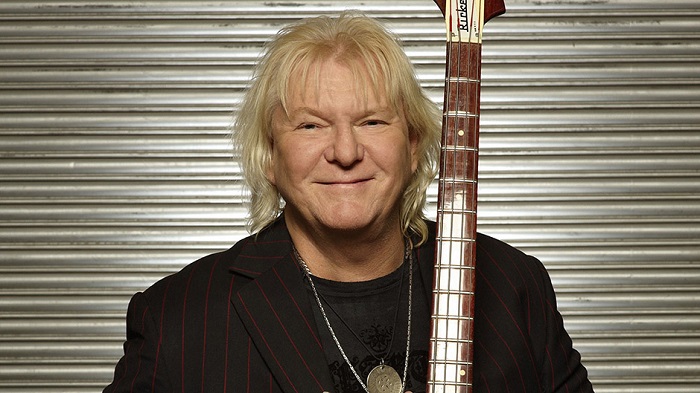
Before Geddy Lee, Mike Rutherford and Les Claypool all turned the bass guitar into the creative virtuoso’s instrument of choice, there was Chris Squire. The Fish. The man who, with a single Rickenbacker bass, transformed Yes into one of the most majestic bands to ever grace the annals of popular music. The genius who helped the bass sing melodies and communicate a language wholly apart and distinctive from guitars and keyboards.
In a group where all five members at any given time proved to be geniuses in their own right, Squire’s major prowess was giving Yes its groove. Sure, Jon Anderson gave Yes its etherealism; Steve Howe, its edge; Rick Wakeman, its classicism. But Squire helped Yes maintain its accessibility with listeners. Working with only four strings and a pick, Squire could easily unleash a torrent of 400 beautiful notes per track, all the while underscoring his bandmates with rich tenor harmonies that fit as easily in stadium environments as they did in church choirs.
Chances are high you know at least one Yes song. No matter what it may be, it contains Squire’s rolling and rumbling bass lines. Strip them away and suddenly “I’ve Seen All Good People,” “Roundabout, “Close to the Edge,” “Wonderous Stories,” “Going for the One” and “Owner of a Lonely Heart” all lose their magic. For Squire was, is and always will be the glue that pieced together the collective talents of his musical brethren. After all, he remains the only band member to stick with Yes since the very beginning.
Not only that—when the band lost vocalist Anderson and keyboardist Wakeman, Squire took on more of a leadership role, helping contribute some mighty bite and impressive bass chops to the group’s underrated 1980 album, Drama (Don’t believe me? Just listen to “Does It Really Happen?” and “Tempus Fugit”).
Even when the time came, in ’75, for Squire to briefly go solo with Fish Out of Water, he did not disappoint. This opus demonstrated how the bass couldn’t be confined to single notes. Within the first ten seconds of “Hold Out Your Hand,” you know you’re hearing a traditional background instrument come alive. Five tracks—that’s all it took for Squire to prove himself a superb musician, whether complemented by the other members of Yes or not.
If progressive rock is modern-day classical and symphonic music, then Chris Squire is the Pablo Casals of the genre. With his untimely passing, time will tell if Yes will pick up and play on or end on this incredibly somber note. Either way, the music world has lost a true relayer of greatness.
—Ira Kantor







Be the first to comment!